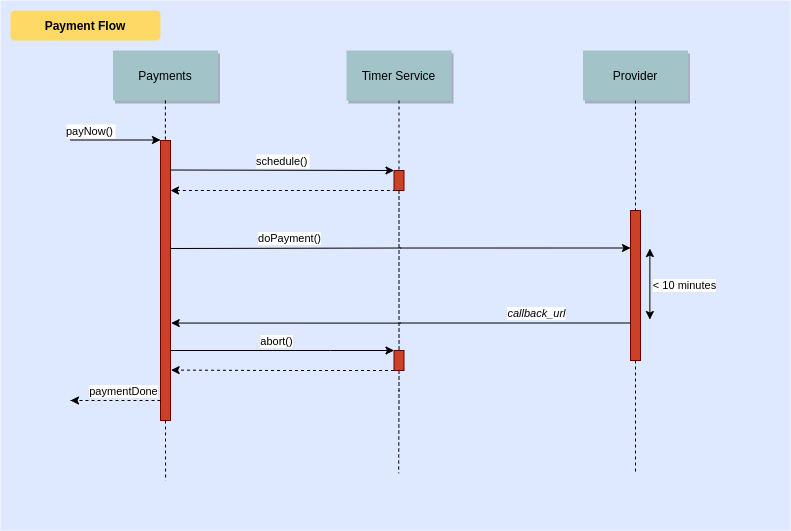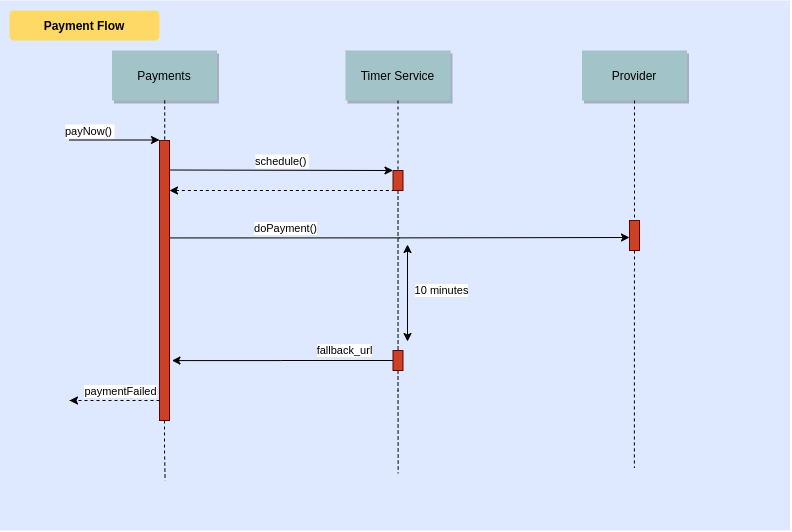Timer Service
The aim of Timer Service is to perform an action when a timer is expired. This allows to schedule a timeout for asynchronous actions that can fail without a notification of the called service.
Introduction
How does it works
Let's explain with an example.
You have a service named Payments that call an external API, named doPayment, with the following parameters:
- orderId
- amount
- callback_url
- timeout
Before calling doPayment API the Payments service schedules a timeout on Timer Service passing the following parameters:
- output_mode → the details on the modality for the notification timeout (e.g. a fallback_url)
- payload → a payload that will be sent into the timeout notification data
- start_date → the date of start of the timer
- expiration_interval_ms → the milliseconds that must pass from start_date for the timeout
- applicant_service → the service who schedule the timer
for more details see usage.
The Payments service will wait for timeout seconds the result of doPayment on the callback_url. If_Payments_receives the callback before the expiration of the timeout, the service calls_Timer Service_abort (Figure 1).
Otherwise the Timer Service timeout occurs and Time Service calls the fallback_url to notify the expiration of the timeout (Figure 2).

Figure 1 - Timer not expired - abort called

Figure 2 - Timer expired - fallback_url called
Timer Service usage
The Timer Service can be used for more purposes, for example:
- schedule a single action that must be executed after the timeout
- send an alarm when a timeout is expired
- monitor that an operation is completed in a predictable time
- ...
Administration
Service Limitations
- horizontal scaling: right now is not possible to horizontal scale the service because the service polls from the dedicated database and all instances would receive same pending timers
- abort forgetfulness: the abort should be done just in case of pending timers but, right now, this check is missing (there is a dedicated section into the contributions file)
- REST methods limit: the rest output allows just
post,putorpatchas REST Verbs, because it sends a payload; it would be nice to allow all the verbs and, in case of verbs without the body, ignore the payload (there is a dedicated section into the contributions file)
Further details
The Timer Service is easy to use and easy to configure: